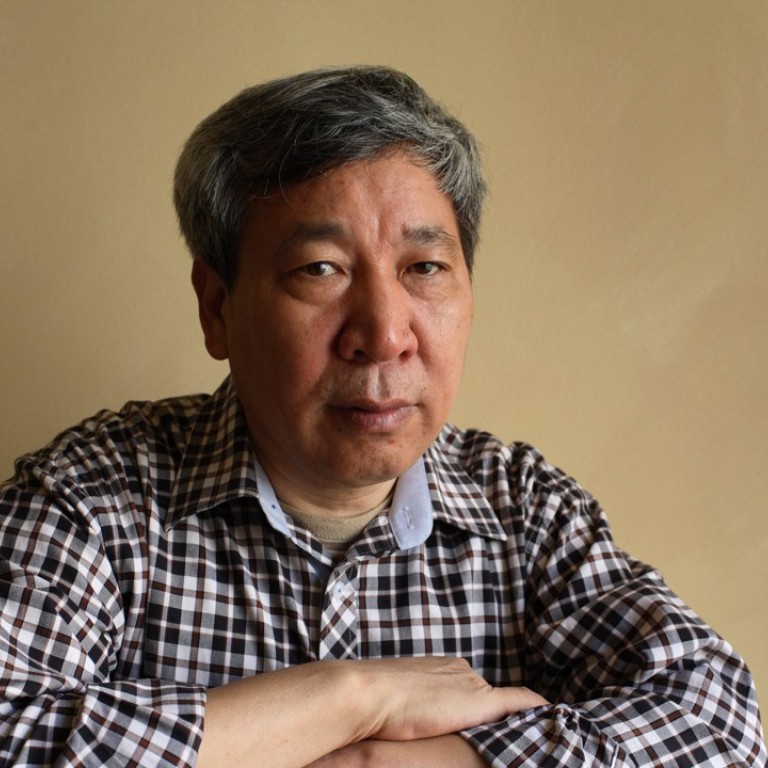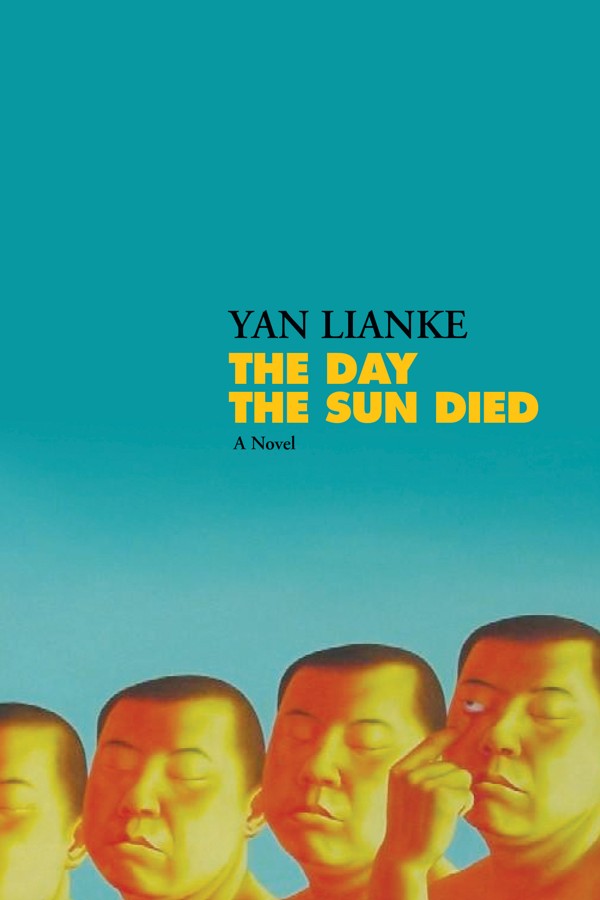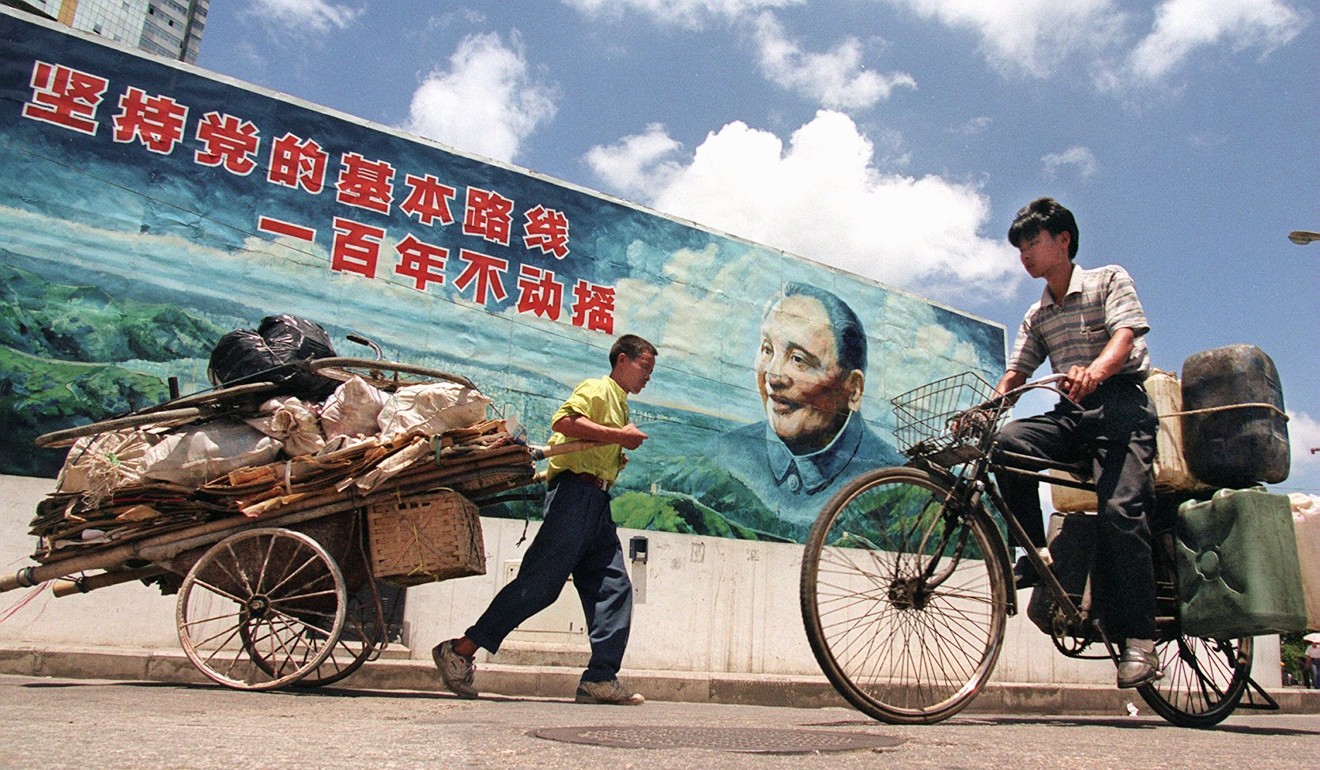
Review | Bleak reality confronts the Chinese dream in Yan Lianke’s gruesome, gripping novel, The Day the Sun Died
Metaphors abound as novelist paints a powerful portrait of his nation’s slide into a prosperous dystopia
The Day the Sun Died
by Yan Lianke (translated by Carlos Rojas)
Grove Press
“Brother Lianke, you can use tonight’s events as the basis for a novel.” Yan Lianke is far from the first novelist to insert himself into one of his fictions: Philip Roth, Bret Easton Ellis, Stephen King and Douglas Coupland are just a few who have tilted at this postmodern windmill.

The Yan Lianke who frequents The Day the Sun Died bears a strong – but deceptive – resemblance to the Yan Lianke who actually wrote The Day the Sun Died, which, in 2016, won Hong Kong’s prestigious Dream of the Red Chamber Prize and has now been translated into English. This fictional Yan’s books are mentioned and liberally (mis)quoted throughout by Li Niannian, our young narrator and Yan-super-fan. All sound almost genuine: Years of Sun, Watery Hardness, Kissing Lenin and (most playfully) Ding of Dream Village, a riff on Yan’s 2005 novel Dream of Ding Village.
“Good or bad, his books contain writing – and even though I may be stupid, I still like to read,” Niannian notes with lighthearted faint praise of the great novelist who just happens to live next door, in Gaotian Village.
We must confront our dark past of the Cultural Revolution to avoid repeating it, says Chinese novelist Yan Lianke
It is Niannian’s father who suggests “Yan” writes a novel about the events that overwhelm the village on June 6; as it is also the Dragon Boat festival, this proposes 2011 as the novel’s temporal setting. During that particular festival, the sun doesn’t set so much as vanish, causing Gaotian’s citizens to “dreamwalk” (Carlos Rojas’ preferred translation of Yan’s original usage).
Neither awake nor asleep, they confront one another in ways that are by turns bizarre, blackly comic, violent and, frequently, terrifying. One man sleepwalks into a canal and drowns (a nod perhaps to the death of Qu Yuan, whom the Dragon Boat festival is said to memorialise); another man harvests grain in his field; Niannian’s mother makes papercuts for the dead; Zhang Mutou murders the man (Boss Wang) he suspects of having an affair with his wife.
Niannian concludes that an individual’s dream-actions represent their innermost thoughts and feelings. The consequences prove devastating: “This matter is as vast as the sky and the earth. In our village, many people died as a result of this matter. In our town, many people also died. In our Funiu Mountains and the world outside, and in that night’s dreamscape, as many people died as there were stalks of wheat being harvested. And the number of people who continued to live pathetically in the mountains was equivalent to the number of grains being harvested.”
A regular habit is to compare tiny things to large things [...] The result is a kind of amplification that proposes Niannian’s story as a national fable: a flea is to a camel’s back as Gaotian’s story is to China, and indeed the world
As this suggests, Niannian makes an engaging, if unlikely narrator. Just 14, he proclaims himself insignificant (“My reputation is as minuscule as a speck of dust in a pile of sesame seeds”) and intellectually feeble: his fellow villagers call him “Sha Niannian” or literally “Stupid Niannian” – the exception being “Uncle Lianke”, who smartly refuses such a pejorative and erroneous label. Niannian’s language might be unadorned, but his rhythmic and heavily metaphorical style generates complex layers.
A regular habit is to compare tiny things to large things (“a flea nit hidden on the back of a camel”). The result is a kind of amplification that proposes Niannian’s story as a national fable: a flea is to a camel’s back as Gaotian’s story is to China, and indeed the world. His tendency to ramble creates a story that is highly fragmented and disjointed, which fits both the hallucinatory apocalypse enveloping Gaotian and Yan’s broader political portrait of a planet out of joint.
The night’s escalating outrages are segmented into concentrated bursts of time using the geng-dian system: for example, 17.00-18.00, 23.00-23.41, 5.16-5.30 and finally the climactic 6.00-6.00 as the earth itself seems to stand still. But the phantasmagorical present vies constantly with the past: Niannian rewinds regularly to recount his family’s somewhat macabre history. His parents run the funeral home; his uncle Yan owns the profitable crematorium.
Chinese author Yan Lianke shortlisted for International Man Booker prize for The Four Books
Death is everywhere in the novel, in both literal and more nuanced configurations. Uncle Yan has grown wealthy, if not emotionally healthy, by exploiting a state-mandated edict to promote cremation over burial. The implications are both practical (a shortage of land) and disturbing: a sharp escalation in the dead, presumably thanks to government programmes such as the Great Leap Forward and the Cultural Revolution.
The immediate context for The Day the Sun Died, however, is Deng Xiaoping’s aspiration to make China gloriously rich. For Uncle Yan, the means is buying a furnace that “had been used during the Great Leap Forward, in the forty-seventh year of the Republic”. The irony is bluntly effective. A machine that represented the dark underbelly of political ideology is, only a few decades later, a symbol of the dark underbelly of materialistic ideology. What makes the skin really crawl is the money Uncle Yan makes from corpse oil, a by-product of the cremation process. Would it be critical overkill to glimpse parallels with the ovens of Nazi concentration camps?
If Gaotian is a microcosm of China’s modern dream, then the village pits losers against the winners. While adaptable forward-thinkers such as Uncle Yan benefit from the sudden love affair with capitalism, plenty of others are left behind, including Niannian’s father, whose desire for wealth exceeds his grasp – and an outdated but stubborn moral code. Having profited by informing on anyone flouting the edict prohibiting burial (Uncle Yan pays handsomely for every disinterred body), he eventually recants, in part on the urging of his noble wife.

It is Li Senior’s guilt and the anger of his fellow Gaotians that are exposed during the dreamwalking as repressed or concealed thoughts are forced towards the light. Again Yan’s political parallels are hard to miss: buried beneath the alluring surfaces of China’s late 20th- and 21st-century prosperity lies abject horror. Or to use Niannian’s own perspective: Uncle Yan’s wealth has been built literally on the bodies of the dead. The only way to endure the ensuing ironies, tensions and disgust is to sleep your way through them.
In much the same way that Yan Lianke isn’t the first writer to fictionalise himself, nor is he the first to compare the delusions surrounding China’s modern economic miracle to a liminal state between wakefulness and slumber: the amnesia of Ma Jian’s Beijing Coma (2008), is one other. The difference here is that sleep unearths subconscious dimensions of the dystopia. In one bravura passage, dreamwalking town officials “enacted a historical scene of the emperor attending to governmental affairs”.
The comparison between ancient and modern China is a little too close for comfort, and perhaps explains why the novel has not been published (yet) on the mainland despite winning the Red Chamber Prize. Yan Lianke’s criticisms, however, extend beyond his homeland’s borders. Time and again, Niannian reminds us that Gaotian’s dark dream has enveloped “the entire world”.
Little wonder (the real) Yan Lianke sounds a persistent note of despondency. His self-portrait in The Day the Sun Died is certainly low on hope. Here he is during his own dreamwalk: “His face was pressed flat from having been slept on, looking as though he had been hit with a hammer. His face and his body were flat. Even his heart had been flattened.”
Even though today’s China has solved the basic problem of providing 1.3 billion people with food, clothing and spending money […] beneath this ray of light lies a dark shadow
In an illuminating preface, translator Rojas confirms that the actual Yan is finding it harder to see the light of optimism for all the gloom. He traces the novel’s central metaphors (burial and violent revelation, unnatural darkness and blinding light) back to Yan’s acceptance speech at the Kafka Prize, which he won at about the same time he began The Day the Sun Died: “Even though today’s China has solved the basic problem of providing 1.3 billion people with food, clothing and spending money […] beneath this ray of light lies a dark shadow. It is as if the brighter the light, the darker the shadow becomes; and the darker the shadow becomes, the thicker the corresponding sheet of darkness.”
If The Day the Sun Died is the expression of this personal near-defeat, it is at least gloriously defiant. The novel manages to be both sophisticated and crude: sophisticated in the layered, gothic excesses of its allegorical zombie narrative; crude in the brute force of its central conceits, which are continually hammered home.
Despite the author’s deflation, his novel points towards a soberly considered optimism. As Rojas notes, Yan may not see the light any longer, but he won’t deny the reader the chance of feeling hope. Whether you read the book positively or in despair, The Day the Sun Died is a powerful, captivating work of art.

